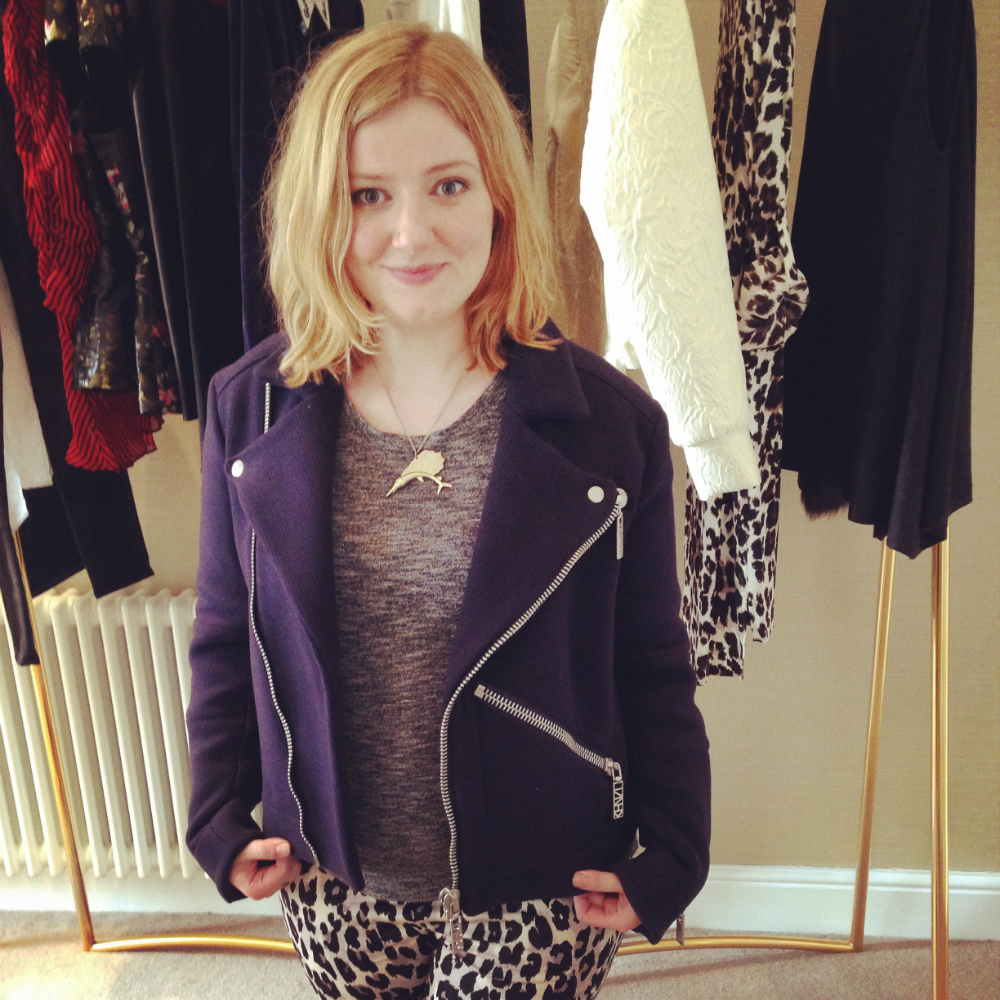Is self-employment the way forward for women?


Celebrity news, beauty, fashion advice, and fascinating features, delivered straight to your inbox!
You are now subscribed
Your newsletter sign-up was successful
Self-employment is skyrocketing in popularity among young women. But why are we flocking to freelance life, and is self-employment a liberation or an unsupported pressure cooker? Lizzy Dening reports...
If you’re self-employed, or thinking of taking the plunge, you’re in good company. The number of self-employed women is up by 55 per cent in the last 12 years, and there are close to a million senior level female freelancers in the UK.
It’s an especially popular lifestyle choice for the young. In fact, the number of freelancers aged 26-29 has risen by 66 per cent since 2008. “Among Millennials and Gen-Z, there’s a particular appeal to freelancing, where they can be flexible, creative and have positive impact,” says career and leadership coach Hanna Andersen. But do the positives of freelancing outweigh the potential negatives – from benefit reductions to instability?
The freedom of self-employment
Watching the clock s-l-o-w-l-y creep around to 5pm after another identical day, the thought of being your own boss can seem like a lifeline. And, for all the potential pitfalls, self-employment can offer freedom – both of time and creativity – as well as the satisfaction of pursuing only what interests you.
If you’ve considered leaving your job, it’s likely that friends or family have questioned why you’re quitting a ‘secure’ role – but in today’s economic climate, it can feel like no job is safe anymore. “Being made redundant made me realise there isn’t such a thing as job security, and your company doesn’t have to be loyal to you,” says Hanna.
Besides which, it’s possible to feel that life is a bit stagnant even within a job you used to love. “I work with women who have typically been working for 15-20 years and they feel a bit stuck – they’re successful on the outside but feeling unfulfilled. A lot are going self-employed because they can create the workplace that they want, aligned with their values,” says career fulfilment coach Laura Cloke. “We don’t have to follow the 9 – 5 path we were told about at school, there are lots of different ways to work now.”
Money worries
But of course it’s not all mid-morning yoga classes and feeling like the mistress of your own destiny. Being freelance comes with its own set of unique problems – from potential loneliness, struggles with self-motivation and, of course, the worries that come without a regular paycheque.
Celebrity news, beauty, fashion advice, and fascinating features, delivered straight to your inbox!
It’s also possible that setting up your own business is only a reality for the privileged: “I would say that self-employment potentially excludes people with a limited income – it can be precarious if you haven’t got savings or financial support from a partner or family,” says Laura. So if it’s something you’re keen to do, it’s worth making sure you have a financial cushion in case things go wrong, especially as you’ll be losing benefits including sick pay, pension contributions and company-supported maternity leave.

“If you’re unfulfilled in the work you’re doing now, and go freelance to do the same thing, you’ll have the same frustrations but without the benefits,” says Hanna. “It may instead be a case of moving around within the profession to find the role that allows you to do so. For example, I worked in banking but felt unfulfilled – I realised I liked helping people feel happy in their work, so I was able to change roles within the company to reflect that.” In a nutshell, leaving your job isn’t the answer until you know what you want to do instead, and it’s worth considering ways to achieve similar goals within an existing role.
Baby business
One gender-specific downside for women wanting to go freelance is the hit to your potential maternity pay packet - with statutory benefits an inglorious £148.68 per week for 39 weeks.
“I am conscious of working as much as possible in the lead-up to giving birth, to save money to take time off,” says Kim Watson, who juggles two jobs as co-founder of holistic wellness business The House of Palms, with freelance communications work. “It's worrying, being a massage therapist, as I don't know how long I will physically be able to offer treatments, but my freelance work helps to supplement it. Having built up my businesses over the last two years, I am aware that taking this time away could be detrimental, but I have to believe in myself. I don't want to regret missing out on time with our baby out of fear of losing clients, which is a hard mentality to kick in our 24/7 'work, work, work' world.”
But there are clear upsides to being a self-employed mum. The flexibility surrounding freelance hours could account for the rise in new mums choosing to go self-employed rather than return to work – up a whopping 79 per cent since 2008. “I am so pleased that I didn't have to get the tube at rush hour in the first trimester when I often felt nauseous, and I could work around how I was feeling, within reason,” says Kim. “I have been able to attend appointments, pregnancy yoga, classes and go swimming in the daytime when I may have struggled to get out of work.I am also not tied to a return date to work, so my partner and I have more options around childcare, my freelance work, and when and how we do this together.”
“Maternity leave is a challenge for self-employed mothers, but they have the freedom and flexibility to build businesses that work around their lives,” agrees Vix Meldrew, founder of Grow & Glow. “They can forward plan for babies, hire staff to delegate to or add different streams of income to their businesses that mean they don’t need to be ‘on’ 24/7.”
While it’s a struggle to balance work and parenting – whether you’re employed or freelance –self-employment allows you to fit work around your childcare, rather than the other way around. “I think self employment is a lot easier on parents in some ways,” says Sonja Leason, MD of Love Mondays and author of A Woman’s Work. “I have a lot of guilt about never being at home for my son. If I had a more flexible job when he was young, I could have done school runs, been at home at 3:30 and then worked in the evening, or early mornings.”
Self-employment is a balance
Ultimately the decision to leave work shouldn’t be taken lightly, but if you’re feeling the urge, there are lots of ways in which it could positively change your life. “When your work isn’t fulfilling it can make you unhappy, and impact on your relationships and wellbeing. And while employment has benefits such as a pension, sick pay and stability, those things can be taken away with redundancy,” says Laura.
“The main thing is to know why you’re doing it,” says Hanna. “If you’re thinking of going freelance, make sure you’re running towards something, rather than away from something else.”
Lizzy Dening is a freelance journalist and editor, specialising in writing about sexual violence, women’s rights, opinion pieces and health. Also, when in need of a break from the bleaker stuff, the odd travel piece or film and book review.
She’s the founder of Survivor Stories, a website featuring interviews with survivors of sexual violence in their own words, and is co-vice chair of Peterborough Rape Crisis Care Group. She’s passionate about listening to survivors, helping them share their stories and shutting down victim blaming. As you might imagine, she’s a right laugh at dinner parties.
She’s been previously published by titles including The Guardian, Grazia, Elle, The Independent, iPaper, the Telegraph, Huffington Post and Women’s Health, and has been digital editor at two national titles. Now self-employed, she considers her cat Moomin her closest colleague, although he’s unreliable when it comes to the tea-round.
Originally from Cambridge, she now lives in Peterborough where she regularly organises events including an annual Reclaim the Night march, feminist film screenings and fundraisers for Peterborough Rape Crisis. She’s also a volunteer at a local food bank (bag packing rate: ninja level) and does occasional PR and comms work for charities and causes. There’s rarely a petition she hasn’t signed.
Avid reader and book club botherer; champion of niche feminist icons; currently learning to play football; wears too much leopard print; sometime poet; Kinder Egg enthusiast; spends a lot of time thinking about going for a run. Favourite places include Sheringham beach, New York, Vienna, Hawaii, obscure museums, the local park, and bookshops.
Currently in the process of launching her first podcast with her (award-winning) podcast producer husband, Ross Sutherland – watch this space…
